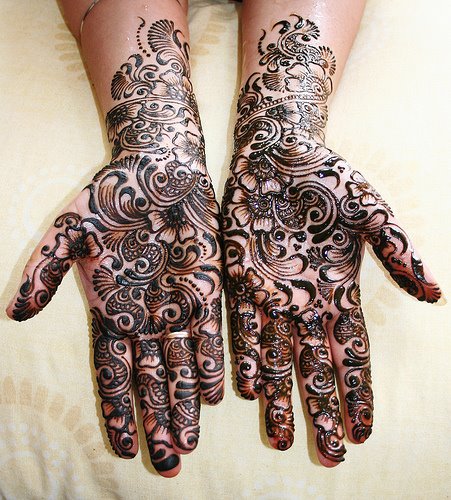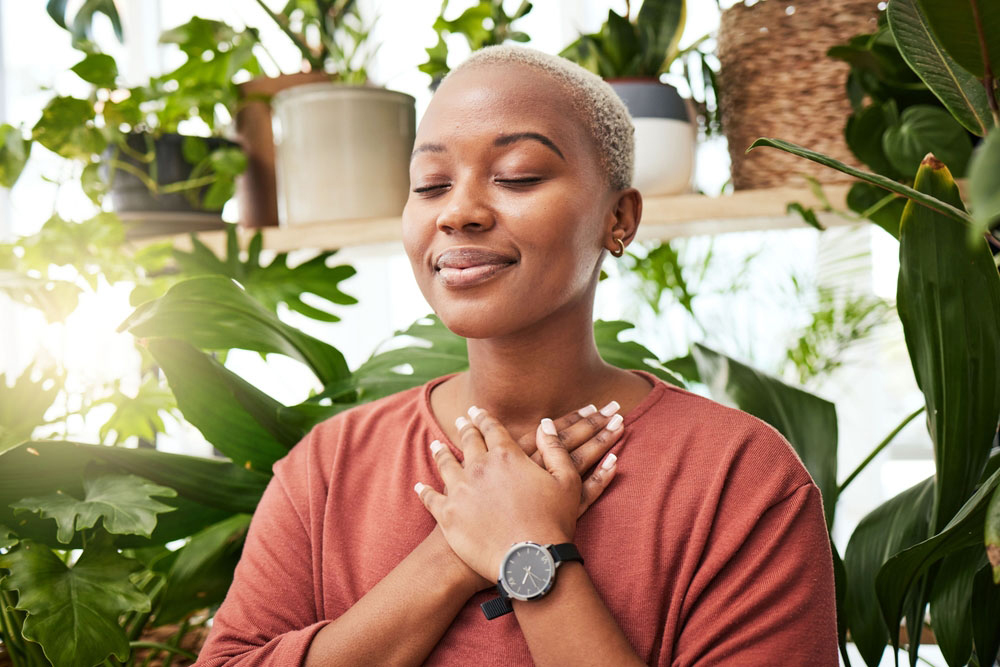Growing up in the states you see that every little girl dreams of her wedding of how it will be and all the details in her head as she grows up. In India or Pakistan, traditionally, the parents would plan their children’s weddings and back in the days arranged marriages were more common. Today, majority of the weddings are love marriages where the bride and groom find each other (the normal way).
A wedding from my culture is a bit more of a headache that will push you to go for a drive-thru wedding in Vegas. Our weddings last for several days. After reading Dick’s post on the cost break-down of his and Fran’s wedding, I almost felt like crying realizing the difference in his wedding and my traditional wedding. Let me give you the breakdown of what how I have come to see a semi-traditional wedding in my culture.

Day 1 – Mehndi. The Mehndi (known as Henna) is a temporary tattoo that the bride, family, and friends put on their hands and some on their feet on special occasions (particularly at weddings). I personally hate the smell of it, some people actually like it.
Day 2 – Pithi. The Pithi ceremony is the day before the wedding. It involves rubbing a paste made of chickpea flour, turmeric, or rose water on the bride and groom. This is great for the skin and evens out the skin tone the day before the wedding. The family takes turns in putting some of it on and over the years this tradition has evolved to friends coming together towards the end and egging the groom and messing him up with all sorts of different grocery items such as eggs, flour, syrup, ketchup, mustard, etc… Sad to say only the groom goes through this un-eventful process =/. After all this mess is done, we dance away and in some weddings play Dandiya which is done so with two sticks hitting each other (sounds ridiculous but is quite fun).
Day 3a – Nikah (Nikkah). The Nikah ceremony is simply a contract between the bride and groom in the Muslim religion. I find it to be equivalent to the marriage license from a judge or justice of peace. This ceremony is only for those within the religion and close family and takes place before the reception itself.
Day 3b – Reception. This is similar to how white weddings (traditional western wedding) are celebrated with dinner and dance party. We have the cake cutting ceremony followed by the first dance and a traditional father daughter dance (taken from the American culture) leading to a night to remember (so they say).
Day 4 – Satada (Rukhsati) – Just when you thought it was over there is one final day. This day is for close family only where the bride is acknowledged to have left her family to go in to the groom’s side of the family. This day has a lot of crying as the parents of the bride realize her daughter is going away. It’s also viewed as the first lunch/dinner with the two families together and the bride and groom have consummated their marriage.
One day I left out which is the court ceremony. We have decided to do our court ceremony on the same week as our reception so that Zaheen (my fiance) could wear a close to traditional white dress at the court room.
So this sums up my interpretation for a five day wedding. I’ll be going through this process this April and will write about my experience afterwards.
What are some traditions you follow for weddings?




